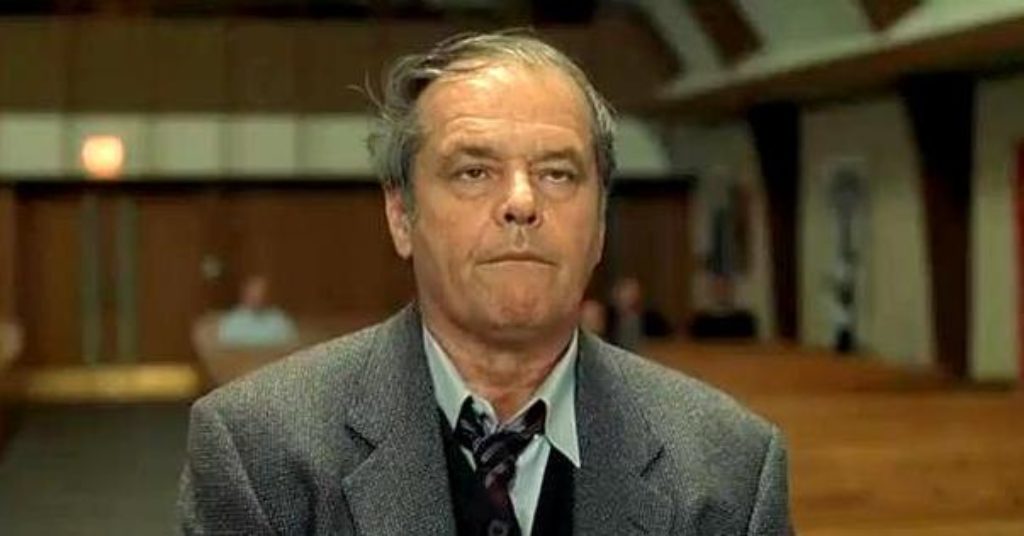Honestly, I was drawn in by Jack Nicholson. Almost all of the films with him have been incredibly good. Maybe I should have listened to myself and that “almost.” However, calling this movie a “failure” would not be fair. It’s an unabashed advertisement for a children’s aid organization in third-world countries. For those who don’t live in the U.S., sometimes, amidst the commercials on TV, you’ll see an ad for a system that helps impoverished children in underdeveloped countries.
The ads are pretty standard: they show pictures of small, dark-skinned or half-dark-skinned children, dirty and sad, looking miserable. Then a phone number and website appear where you can order free information. Along with the information, you receive a brochure describing the program, photos of children, and a donation slip. For just 15-20 dollars a month, you can help a child go to school and never suffer from hunger. Isn’t 20 bucks worth it to help a poor child? You send a check, and they send you a photo and information about the child you’re “sponsoring.”
The movie itself is about a terribly lonely and lost pensioner. His whole life, he studied risks while working at an insurance company, conducting research. But when he retired, all his work turned out to be worthless. He accidentally saw boxes of his research being thrown out. He never really loved his wife, but when she died, he began to miss her, and then, suddenly, he found out that she had been cheating on him with his best friend. He discovered their correspondence when he was nostalgically going through her clothes. This way, he “lost” his friend, and his daughter, who had moved to another city, didn’t even stay with him for a few days after the funeral. She had a wedding to prepare for, and her father had to get used to living alone. Schmidt doesn’t like his daughter’s fiancé, but there’s nothing he can do about it.
One day, his car breaks down, and he decides to take the big RV they bought to travel in during their old age and drive to his daughter’s wedding. He calls her from the road, but she’s not particularly excited about his visit. She has enough on her plate with the wedding… Everything seems off. Everything is lonely and sad about this Schmidt, and the film is not at all uplifting. It wouldn’t be as disheartening if it weren’t for the little boy Udogo, whom Schmidt sends $22 to each month. In essence, the film consists of a visual sequence of events and Schmidt’s voiceover, as he writes letters to Udogo about his life.
The movie ends, of course, in a very sentimental way when a tired and lonely Schmidt returns home and finds a letter from a lady with a French accent. She tells him that Udogo reads all of Schmidt’s letters, and that Udogo drew a picture for him. The abstract drawing by a six-year-old child very expressively depicts Jack Nicholson holding the hand of the author of the abstraction, Udogo. Everyone is happy. Schmidt cries.
The moral: send money to little boys like Udogo. 22 bucks won’t hurt, and you’ll feel redeemed from loneliness and like you’re doing a noble thing.
I have nothing against helping children in third-world countries. Not at all.
I just really dislike when cinema is used as an advertisement that stretches over two hours. This also applies to films like Because of Winn-Dixie (the name of a supermarket chain in the U.S.), Cast Away (FedEx), Must Love Dogs (Match.com dating service)… I can’t recall others right now, but these kinds of movies usually have one or two very famous actors, with a small budget and simple scripts — just amusing enough that you might want to watch them at least once.
Of course, it’s less annoying when advertising is inserted into the plots of films in a more elegant or subtle way. For example, Starbucks shows up in pretty much all films that promise popularity. But in movies like Fight Club, where Starbucks is specifically featured, or in some James Bond films (like the last GoldenEye or Golden Ear — 007), it’s not always clear if the film is just filled with commercials or if it’s a commercial with a little bit of film. It’s hard to say which is diluted with what, as the commercial side often overpowers the film.
But I love cinema.
